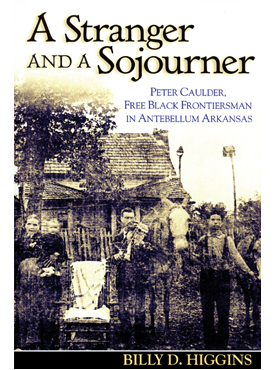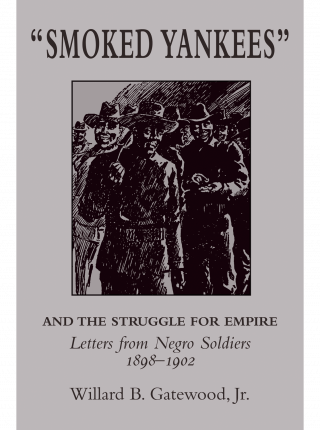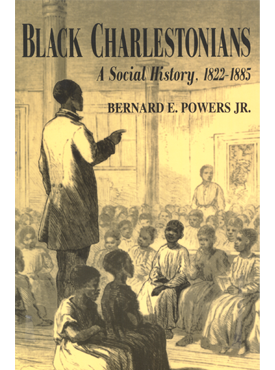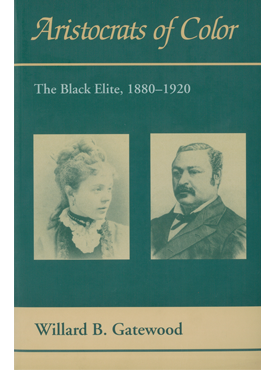A Stranger and a Sojourner: Peter Caulder, Free Black Frontiersman in Antebellum Arkansas tells the extraordinary story of Peter Caulder, a free African American settler in the Arkansas Territory. After serving as a rifleman in the war of 1812, Caulder established a community of free-born African Americans in northern Arkansas and was largely accepted by his white neighbors until an 1859 expulsion law forced the community to flee the state and settle in Missouri.
Like many frontier people, Peter Caulder was unschooled and signed his name only with a mark. To document such a man’s life, and to determine how he thrived within a slave society and came to join a free black backwoods community, Billy Higgins has skillfully interwoven oft-neglected primary sources—many of which are reproduced here—from around the country; and through the information revealed in censuses, tax records, sutler’s account books, army returns, folk stories, land warrants, traveler’s journals, and newspaper notices, a fascinating—and groundbreaking—account of Caulder, his family, his friends, and his community has emerged.
Billy D. Higgins has been a professor of history at the University of Arkansas at Fort Smith since 1993. This is his first book. His essays on African American culture before and after the Civil War have appeared in Freedom’s Odyssey: African American History Essays from Phylon and the Arkansas Historical Quarterly.
“Higgins presents a more complex and nuanced picture of life for blacks in the antebellum South in this portrait of a black frontiersman who lived and thrived in the Arkansas Territory. . . . Using numerous historical resources, Higgins reconstructs Caulder’s life as an independent, though engaged, citizen of the territory. He also portrays the number of other free blacks who lived in tentative peace and self-sufficiency among white neighbors until the murder of a local white man, the expulsion of free blacks, and the threat of enslavement forced Caulder to flee Missouri. This well-researched book adds new dimension to portraits of the lives of blacks before and after the Civil War.”
—Booklist
“Meticulously researched and solidly written, Higgins’ book succeeds as a look into some of the best—and the worst—of the settling of Arkansas. Anyone interested in local history will want to add it to his bookshelf.”
—Grant Tolley, Southwest Times Record
“Higgins has performed a remarkable achievement as well as a great service by piecing together the life of Peter Caulder, an obscure but fascinating figure whose biography gives us a new perspective on the racial aspects of the antebellum Arkansas frontier.”
—S. Charles Bolton, author of Arkansas, 1800–1860, and co-editor of A Whole Country in Commotion, writing in the Arkansas Democrat-Gazette
“Highly profitable reading. . . . This is an important work that is based upon incredible research and written with clarity, grace, and sensitivity. The story of Caulder, his family, and his associates is not only inherently interesting, but it is also a story with broad historical implications.”
—Willard B. Gatewood, Alumni Distinguished Professor of history emeritus at the University of Arkansas and author of Aristocrats of Color: The Black Elite, 1880—1920 and Smoked Yankees and the Struggle for Empire: Letters from Negro Soldiers, 1898—1902
“Billy Higgins, detective-historian of remarkable merit, has put together one of the more intriguing stories I have ever read about the Antebellum South in all its complexity. Peter Caulder, an illiterate free black, defied all our generalizations about race as he served with distinction in the United States Army, repeatedly crossed the color line, and became an Arkansas yeoman farmer, thriving and respected by white neighbors until he fell victim of new discriminatory legislation on the eve of the Civil War. It is essential reading for students of African-American and Southern history.”
—Don Higginbotham, professor of history at the University of North Carolina at Chapel Hill and author of George Washington: Uniting a Nation
“A painstakingly reconstructed account of a remarkable life, one that reveals the interwoven frontiers of race, geography, and culture in nineteenth century America. And a worthy reminder that history is always more complicated than we thought.”
—H. W. Brands, distinguished professor of history at Texas A & M University and author of The Reckless Decade: America in the 1890s
Cowinner of the 2005 Ragsdale Award




